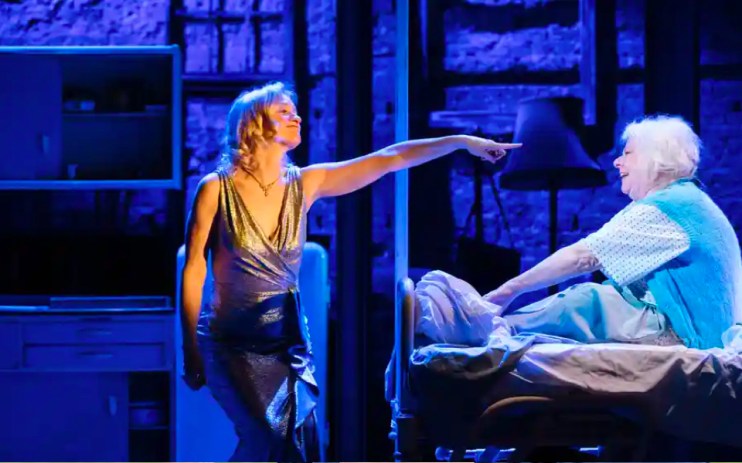Anne-Marie Duff in fine form in The House of Shades at the Almeida

Sometimes an ambitious failure is preferable to a safe success, but that’s sadly not the case with The House of Shades.
Even the incredible Anne-Marie Duff – on fierce form – is unable to pull together the threads of a play that’s part state-of-the-nation polemic, part kitchen sink drama, part Greek tragedy and part surreal fever dream.
It follows a working class Nottinghamshire family from the mid-1960s, when the Labour movement was gaining momentum, through the dog days of the late 1970s when the post-war dream finally collapsed, and into the present day. At the heart of it all is Duff’s Constance, a sassy, charismatic housewife saddled with three children, which is at least one too many as far as she’s concerned.
Constance is a character in a Shelagh Delaney play who thinks she’s a character in a Tennessee Williams play. She quotes Bette Davis and performs wistful song-and-dance numbers around the dinner table (showing off Duff’s excellent singing voice), while her Union Man husband silently reads the papers.
But there’s a dark side to Constance’s fetishisation of Hollywood glamour – she’s hopelessly dissatisfied, livid at her inability to break free of the family home, and willing to lash out with barbed tongue at anyone who comes too close. As the decades drag on, she becomes increasingly toxic, the abuse handed down from her parents passed in turn to her children.
It has the makings of a tight family drama but writer Beth Steel has loftier ambitions. The structure and some of the more uncomfortable themes are borrowed from Greek tragedy, and there’s space for hazy dream sequences and a grave-side Shakespeare pastiche featuring the ghost of Nye Bevan. It’s a lot.
The House of Shades tries to tell a big story through the prism of a small story, but the big is too big – the entire political journey from the founding of the NHS to the Brexit vote – and the small is too diffuse, with too many characters circulating to give any one of them time to breathe.
The result is a series of rhetorical devices masquerading as people, not least Constance’s twins, one a Thatcherite, working-class-boy-done-good, the other a struggling, dyed-in-the-wool Old Labour true believer; the didactic nature of the script robs the scenes they share of their emotional weight.
The only character who feels fully fleshed out is Constance and I longed to spend more time with her. Her slow, tortured unravelling is played wonderfully by the utterly magnetic Duff; this is both a character and an actor worthy of constructing an entire play around.
None of this is helped by the fact director Blanche McIntyre’s production takes its sweet time to get going, opening with a minutes-long sequence in which a woman – the Greek chorus of the piece – slowly washes a corpse.
This sets the pace for a play that’s in no hurry to reach its destination, and when it finally comes time for a series of devastating revelations it seems to take the production by surprise. It all feels like an early draft, the result of a brain-storming session in which there were ‘no wrong answers’, the whole thing ready to be set about with a red pen.
